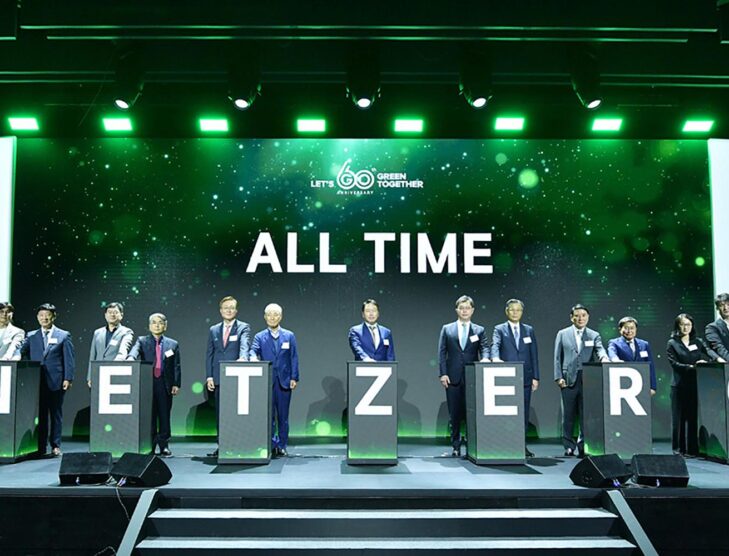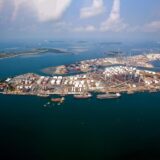
SK to invest KRW5 trillion in Ulsan complex to reach net zero
SK Innovation will invest KRW5 trillion (USD3.4 billion) in its flagship Ulsan industrial complex in South Korea to transform the oil refining and petrochemical complex to a green energy and material company by 2027, reports Yonhap News.
“After building South Korea’s first refinery plant in Ulsan, SK Innovation grew to a comprehensive energy and chemicals company,” said Yoo Jae-young, in charge of the Ulsan industrial complex, or Ulsan CLX, the company’s flagship refining factory site in the southeastern port city.
“We are now changing to become an environment-friendly energy firm through technology innovation and investment,” he said.
The company said it will achieve net-zero emissions by 2050 as planned.
The Ulsan complex was first built off the coast of the southeastern port city of Ulsan in 1964 two years after Korea Oil Corp., the predecessor of SK Innovation. SK Innovation is the SK Group’s intermediate holding company, which operates energy, petrochemical, e-mobility battery, information electronic materials businesses, along with eight major subsidiaries including SK Energy, SK Geo Centric, SK On, SK Lubricants, SK Incheon Petrochem, SK Trading International, SK IE Technology, and SK Earthon.
The petroleum industrial cluster has five in-house refinery plants and 34 oil storage tanks, with a daily capacity of 840,000 barrels of crude oil. The total length of its oil and gas transmission pipeline is about 600,000 kilometers. At the complex, gasoline and diesel fuel, petrochemical feedstocks, and lubricating base oils are produced by SK Innovation’s three energy-related affiliates—SK Energy, SK Geo Centric and SK Lubricants.
The company will invest KRW1.7 trillion (USD1.1 billion) in creating a new plastic recycling cluster in Ulsan next year, to process 25,000 tons of plastic waste. Chemical recycling of polypropylene, polyethylene terephthalate and other plastic compounds will be done at the new reprocessing center, which will start production in the second half of 2025.
More than KRW3 trillion (USD2 billion) will be invested to transform its production chain, from fossil-based feedstock to less carbon intensive feedstocks. The company said its carbon reduction efforts re already underway. It has for example replaced bunker C fuel oil with liquefied natural gas (LNG) to operate the boilers for its steam turbines, thus reducing carbon emissions by 144,000 tons.





.png)


